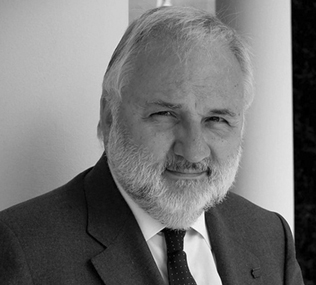“Universities must spearhead the 2030 Agenda”, by Cristina Gallach
Introduction from the President

Dear all,
The late Stephen Hawking told us that only empathy can save humanity. This ability to put ourselves in other people's place affects our everyday life, but even more so the future; it entails the search for better horizons so that future generations can inherit a world where there are more possibilities, fairness and hope. This may explain why, in times of extreme difficulty, initiatives appear that shift our focus away from everyday life, towards what may await us in the years ahead. Take for example the Universal Declaration of Human Rights, adopted in 1948 in a post-war world rife with divisions. A little over half a century later, with the world suffering from other, more recent crises, the United Nations put forward its Sustainable Development Goals (SDGs), packaged together in what it named the 2030 Agenda for Sustainable Development.
This new and improved universal declaration is a call to arms for us all; as a society in general but also specifically for us as a university. The SDGs offer us a shared playing field, a set of interconnected work plans, and aspirations for a better future. In this year's inaugural lecture, Cristina Gallach, the Spanish Government's High Commissioner for the 2030 Agenda, re-emphasizes the significance of a "common language" and the massive opportunity to "mark a change in the complex situation in which today's world finds itself".
The UOC's adoption of the 2030 Agenda is in perfect agreement with the University's essential characteristics. In particular, it contributes to the fulfilment of our mission: to prioritize education and research, to respond to social needs, to stimulate talent, and to promote and unite knowledge. Universities are no longer the rigid institutions of yesteryear, in which people educated in bygone eras were charged with instructing those who were to decide the future – a peculiar intersection between the ages. Today's universities are more porous, more cross-functional, more disruptive and more necessary; we can attribute this to factors such as the growing importance of lifelong learning, continuing evolutions in the courses taught and in demand, and the emergence of new teaching methods, technologies and organizational models.
Making the 2030 Agenda part of our teaching, our research, our internal procedures and all areas of the UOC is a commitment that is in keeping with our vocation, our duty of care for the present moment and our goals for the future. We are both rooted in our surroundings – be that Sant Quirze de Besora for Cristina Gallach or Avinguda del Tibidabo in Barcelona for the UOC – and connected worldwide, part of a shared tomorrow. We have not chosen the easy route, but as Professor Mary Beard from the University of Cambridge has said, the role of academics is to show how everything is not so simple, but rather more complicated. Similarly, the goals set by the Agenda 2020 are ambitious, but what is at stake is the future for generations to come. It's no small matter!
Have an excellent academic year 2019/2020!
Josep A. Planell
UOC President
